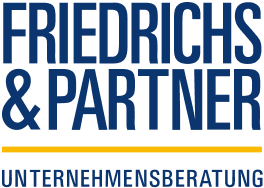Companies had a strong need to professionalize their HR departments, starting from restructuring personnel development to establishing the HR function in top management.
The late 1980s were marked by high unemployment among scientists and engineers. Many chemists, chemical engineers, and general engineers, among others, were seeking employment, while many scientists found themselves in retraining programs.
Due to the market situation, executive search consultants had comparatively fewer mandates with a technical or scientific profile, as companies could easily fill such positions themselves.
This surplus of qualified labor in the market was a dream from the employers' perspective as they had a wealth of candidates to choose from.
Starting in 1990, the reunification of Germany led to a special economic upturn in the job market. Western German companies and international firms established their presence in the new federal states and/or acquired East German companies.
Especially during the initial phase, a comprehensive need for Western German workforce emerged for the "Aufbau Ost" (the rebuilding of East Germany), attracting them with high salaries. Simultaneously, former GDR employees and cadres were retrained to adapt to the free market economy.
Significant investments were made in the East German infrastructure, leading to a high demand for various professionals - civil engineers, engineers in general, craftsmen, doctors, administrative staff, and many more. There was also a great demand for executives for the East German companies.
These unique labor market conditions naturally had an impact on executive search, resulting in full order books for recruitment firms.
A few years later, in the mid-1990s, the internet and eCommerce boom gained momentum. The so-called "New Market" attracted many private investors to the stock market for the first time, luring them with extraordinary profits.
This internet boom led to the rapid emergence of startups. Countless small companies aimed to join the New Market as quickly as possible to make a substantial profit.
The CEOs of these small "technology and IT companies" suddenly held titles such as CEO, COO, CTO, and all founders hoped for rapid breakthroughs and swift wealth.
There was a gold rush mentality.
Banks were very liberal with lending, and young companies burned through vast sums of money, all hoping for a successful IPO. Consequently, there was a high demand for executives for these startups - CEOs, CTOs, CFOs, COOs, and more were desperately sought after.
New executives and even the recruitment firms themselves were enticed with company shares and the prospect of quick profits through potential IPOs. Most founders considered themselves potential champions and aspiring unicorns.
The market sentiment became increasingly overheated, and many of the first young companies soon ran out of steam. Ultimately, it became clear that these startups lacked a clear unique selling proposition and were poorly managed.
One reason for mismanagement was the then unconditional obsession with youth. Executives over 40 were labeled as old and therefore not capable enough by the majority of decision-makers (founders, investors, and large corporations) and were ruthlessly eliminated.
The ideal candidates were preferably in their early to mid-thirties - just like the company founders themselves.
Life and professional experience were not appreciated at that time; instead, untapped youth was preferred. This had its disadvantages, including limited experience in business management and restricted social skills due to a lack of life experience.
From today's perspective, those were unreal times on the fast track - unbridled until the bursting of the internet bubble.
The New Market collapsed at a similarly frantic pace at the end of the 1990s. Once-hyped stock market stars went bankrupt without a trace, and employees were laid off in large numbers.
The tech market (internet, e-commerce, and telecommunications) crashed, and the German economy entered a longer recession in 2000/2001, making market conditions difficult for recruitment agencies.
Just as the economy began to regain its footing in 2001, the 9/11 attacks happened.
The world held its breath and watched in shock as the Twin Towers collapsed in New York.
Following the attack, the global economy drastically declined. In 2001, the German unemployment rate reached 7.8%, and the economy faced tough years ahead, with the unemployment rate in Germany rising continuously to 10.4% by 2006.
This exceptionally high unemployment rate, compared to today, was reflected in an unusually large pool of highly qualified candidates for executive search consultants.
For example, it was not uncommon for more than 500 applicants to apply for executive positions. Not only was the quantity unusually high, but the quality of the contacts was also remarkable - more than 10% were genuinely well-suited. From today's perspective, these were dream statistics.
At that time, executive search consultants had an abundance of choices and had to filter out the right candidates from a large number of suitable applicants.
In our view, the turnaround in the German job market began in 2006.
After the football fairy tale, a sustainable fairy tale began in the German job market.
Suddenly, the long-standing negative sentiment in the German economy shifted, and companies began hiring executives and experts on a larger scale.
Euphoria and a desire for growth spread among companies, leading to an unprecedented boom in the recruiting market. Things rapidly improved, including for the executive search industry.
However, this boom was abruptly interrupted by the Lehman Brothers' bankruptcy and the subsequent financial and debt crisis in 2008.
2009 was a year of horror news - many companies experienced an unprecedented drop in orders (up to 90%) and feared for their existence.
The plunge into the abyss threatened, leading to a global crisis in the automotive industry.
Unlike previous economic crises, German employers largely avoided large-scale layoffs at that time and instead opted for short-time work to retain their core workforce.
This retention of well-trained and experienced employees was the main reason why German companies emerged from the financial crisis so well, leading to what is known as a hockey stick recovery in the economy and job market.
From 2010 to 2020, it was a golden era for the German economy, and the recruitment sector experienced an unprecedented upswing.
Today, the results of this long and sustainable upswing are evident in the job market.
From an oversupply of qualified candidates shortly after the turn of the millennium, it has now turned into a pure candidate-driven market.
Job seekers have a choice of different offers and have become more selective. They now have the upper hand and can dictate their terms to companies to a large extent. Even the COVID-19 pandemic in early 2020 did not fundamentally change this labor market situation.
For recruitment agencies, the COVID-19 pandemic posed an unprecedented challenge.
Almost overnight, remote work became the new working model, transforming the in-person service of recruitment into a remote service, just like that.
Orders were given virtually, interviews were conducted virtually, and clients were guided through the recruiting process virtually. And it worked. Even better than imagined.
Today, hybrid working has become established, while executive search has largely remained a virtual service - for various reasons.
After four decades of constant change, one thing is clear to us - the dynamics of market conditions will undoubtedly continue.
What's next?
Avatars as future interview partners and executive search in the metaverse?
Or even something completely new that doesn't exist today?
Regardless of what comes:
We at Friedrichs & Partner are looking forward to it and gladly accept the challenge of change in the future as well!


